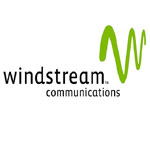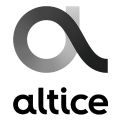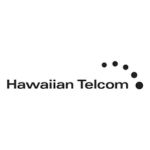
Overview
Telecommunication refers to the transmission of information over a distance through the use of various technologies and systems. It involves the exchange of voice, data, video, and other types of information between individuals, businesses, and devices. Telecommunication systems provide the infrastructure and means to transmit and receive information across different locations. These systems rely on a combination of wired and wireless technologies, such as telephone lines, fiber optic cables, satellite communication, radio waves, and cellular networks.
GAO Tek’s DC ground fault locator have the following applications in telecommunication industry:
- Fault Detection and Localization: GAO Tek’s dc ground fault locators are used to detect and locate ground faults in the power supply systems of telecommunication infrastructure. Dc ground faults can occur due to factors like equipment malfunctions, lightning strikes, or environmental conditions. By accurately identifying the location of the fault, technicians can take prompt action to rectify the issue and minimize downtime.
- Equipment Protection: Our Dc ground faults can pose risks to telecommunication equipment. Our dc ground fault locators help in the early detection of faults, preventing potential damage to sensitive equipment. By monitoring our grounding system, these locators ensure that the equipment operates within safe operating parameters.
- Remote Monitoring: Our DC round Fault locators are equipped with remote monitoring capabilities, enabling continuous monitoring of the dc power systems in telecommunication networks. These systems can alert technicians or system administrators in real-time if a ground fault is detected, providing prompt notifications for timely intervention and maintenance.
- Preventive Maintenance: Our DC ground fault locators are used as part of preventive maintenance strategies in telecommunication. By regularly monitoring the grounding system and detecting potential ground faults, operators can proactively address issues before they escalate into larger problems. This approach helps minimize unexpected downtime and extends the lifespan of the equipment.
- Regulatory Compliance: Telecommunication companies are often subject to regulatory requirements regarding electrical safety and grounding. We assist in meeting these compliance standards by continuously monitoring the grounding system and promptly addressing any ground faults that may arise.
Complying with Government Regulations
GAO Tek’s DC ground fault locators comply or help our customers comply with U.S. government regulations such as:
- Federal Communications Commission (FCC) Regulations: It is the primary regulatory authority for the telecommunication in the United States. They establish and enforce rules regarding spectrum allocation, licensing, equipment certification, and technical standards. While they may not have specific regulations for dc ground fault locators, they have broad authority over telecommunication equipment.
- National Electrical Code (NEC): It is a set of standards and regulations that govern electrical installations in the United States. While the NEC is not specific to telecommunications, it provides guidelines for electrical safety and can be applicable to various sectors, including telecommunications.
- Occupational Safety and Health Administration (OSHA) Standards: OSHA sets regulations and standards to ensure workplace safety, which may include requirements for electrical equipment safety, grounding, and hazard mitigation. These standards may indirectly affect the use of dc ground fault locators in telecommunication environments.
- State and Local Regulations: Depending on the specific jurisdiction, state and local authorities may have additional regulations pertaining to electrical equipment, safety, and telecommunications infrastructure. These regulations can vary, so it’s important to consult the relevant authorities in the specific location where the equipment will be used.
GAO Tek’s DC ground fault locators comply or help our clients comply with Canadian regulations such as:
- Innovation, Science and Economic Development Canada (ISED) Regulations: The department responsible for regulating telecommunications in Canada. They oversee spectrum allocation, licensing, and technical standards. While there may not be specific regulations related to dc ground fault locators, compliance with ISED regulations for telecommunication equipment is necessary.
- Technical Standard and Safety: The regulation play a crucial role in telecommunication by Equipment performance and interoperability, reliability and quality assurance, safety considerations, Interference Mitigation, Compliance and regulation including the use of dc ground fault locators.
- Spectrum Allocation and Radio Communication Regulations: The regulation of radio spectrum and wireless communication is important in telecommunication. The Canadian government, through ISED, manages spectrum allocation and establishes regulations for radio communication. This regulation may indirectly impact the use of dc ground fault locators that operate that operate in specific frequency bands or utilize wireless communication capabilities.
- Provincial and Territorial Regulations: In addition to federal regulations, individual provinces and territories in Canada may have specific regulations related to the telecommunications. These regulations can vary, so it’s important to consult the relevant provincial or territorial regulatory authorities.
Case Studies of DC Ground Fault Locators in Telecommunication Industry
Here are some practical examples of using DC ground fault locator in telecommunication industry:
A large telecommunication facility in New York City experienced frequent power disruptions. A dc Ground Fault locator was employed to identify and localize ground faults in the power distribution system. The locator helped technicians’ pinpoint faults in the battery systems and rectifiers, allowing for quick repairs and improved power reliability.
A remote cell tower site in Alberta, Canada, powered by a solar panel system, faced reduced power generation. Technicians used a dc Ground Fault locator specifically designed for solar power systems to detect and locate ground faults in the solar array. The locator aided in identifying faulty wiring connections, enabling prompt repairs and restoring optimal power output.
A large data center in Toronto experienced recurring power issues, affecting its operations. A dc Ground Fault locator was utilized to troubleshoot and identify ground faults in the rectifier systems. The locator helped locate faulty modules and damaged wiring, allowing for efficient repairs and improved power stability.
During the expansion of a telecommunication network in California, multiple new cell tower sites were established. Dc Ground Fault locators were employed to ensure the integrity of the newly installed power distribution systems. The locators aided in detecting and locating any ground faults in the battery banks, rectifiers, and power connections, ensuring a reliable power supply to the newly deployed equipment.
A submarine cable station in British Columbia encountered issues with its dc power system. Dc Ground Fault locators were used to diagnose and localize ground faults in the power distribution infrastructure, including battery systems and rectifiers. The locators facilitated efficient repairs and maintenance, minimizing downtime and optimizing the transmission of data through the submarine cables.
The main page of the DC Ground Fault locator has more information on GAO’s dc Ground Fault locator and their applications in various industries:
Use of DC Ground Fault Locators with Leading Software and Cloud Services in Telecommunications Industry
GAO Tek has used or has facilitated its customers to use GAO’s telecommunication with some of the leading software and cloud services in their applications. Examples of such leading software and cloud services include:
- Remote Monitoring and Control Software: This software allows operators to remotely monitor and control dc ground fault locators in the telecommunication infrastructure. It provides real-time access to data, fault alerts, and the ability to configure settings and perform diagnostics remotely.
- Data Analysis and Reporting Software: This type of software enables operators to analyze data collected by dc ground fault locators in the telecommunication network. It may include features for trend analysis, fault pattern identification, statistical analysis, and report generation to help optimize system performance and maintenance strategies.
- Mobile Apps: Some manufacturers offer mobile applications that allow operators to access and manage dc ground fault locators from their smartphones or tablets. These apps provide remote monitoring, control, and access to real-time data, enhancing the convenience and flexibility of managing ground fault locators in the telecommunication.
- Fault Analysis Software: This software analyzes fault data collected by dc ground fault locators in the telecommunication network. It helps identify fault patterns, determine fault locations, and provides insights into the underlying causes of faults, assisting in targeted repairs and maintenance.
- Trend Analysis Software: Trend analysis software allows operators to analyze historical data from dc ground fault locators in the telecommunication. It helps identify trends, patterns, and recurring issues over time, facilitating proactive maintenance and optimization of the network.
- Amazon Web Services (AWS): AWS offers a wide range of cloud services that can be used for building and deploying applications. Services like Amazon EC2, Amazon S3, and Amazon RDS can be leveraged for storing, processing, and analyzing data collected by the dc ground fault locator.
- Microsoft Azure: Azure provides various cloud-based services suitable for the telecommunications industry. Azure Virtual Machines, Azure Blob Storage, and Azure Functions can be used for data storage, processing, and running serverless applications for fault locating.
- Google Cloud DataPro: DataPro is a managed big data service provided by Google Cloud Platform (GCP). It allows for the creation and management of Apache Spark and Apache Hadoop clusters for data processing and analysis. DataPro can be used to analyze fault locating data collected by the dc ground fault locator.
- Oracle Data Science: Oracle Data Science is a cloud-based platform that enables data scientists to collaborate and build machine learning models. It provides a comprehensive set of tools and frameworks for data analysis, feature engineering, and model training. Oracle Data Science can be used for analyzing fault locating data and developing predictive models.
GAO Tek Has Many Customers in the Telecommunication Industry
GAO Tek’s DC ground fault locator has been used by many customers in the telecommunication, including some leading companies.
Here are some of the leading companies in the telecommunication industry:
 AT&T
AT&T
 VERIZON
VERIZON
 T-MOBILE
T-MOBILE
 COMCAST
COMCAST
 CHARTER
CHARTER
 SPRINT
SPRINT
 CENTURYLINK
CENTURYLINK
 COX
COX
 FRONTIER
FRONTIER
 WINDSTREAM
WINDSTREAM
 DISH
DISH
 ALTICE
ALTICE
 CSPIRE
CSPIRE
 CONSOLIDATED
CONSOLIDATED
 CINCINNATI
CINCINNATI
 MEDIACO
MEDIACO
 HAWAIIAN
HAWAIIAN
 CABLE ONE
CABLE ONE
GAO Tek’s DC ground fault locator and their applications in other industries are listed on this page:
